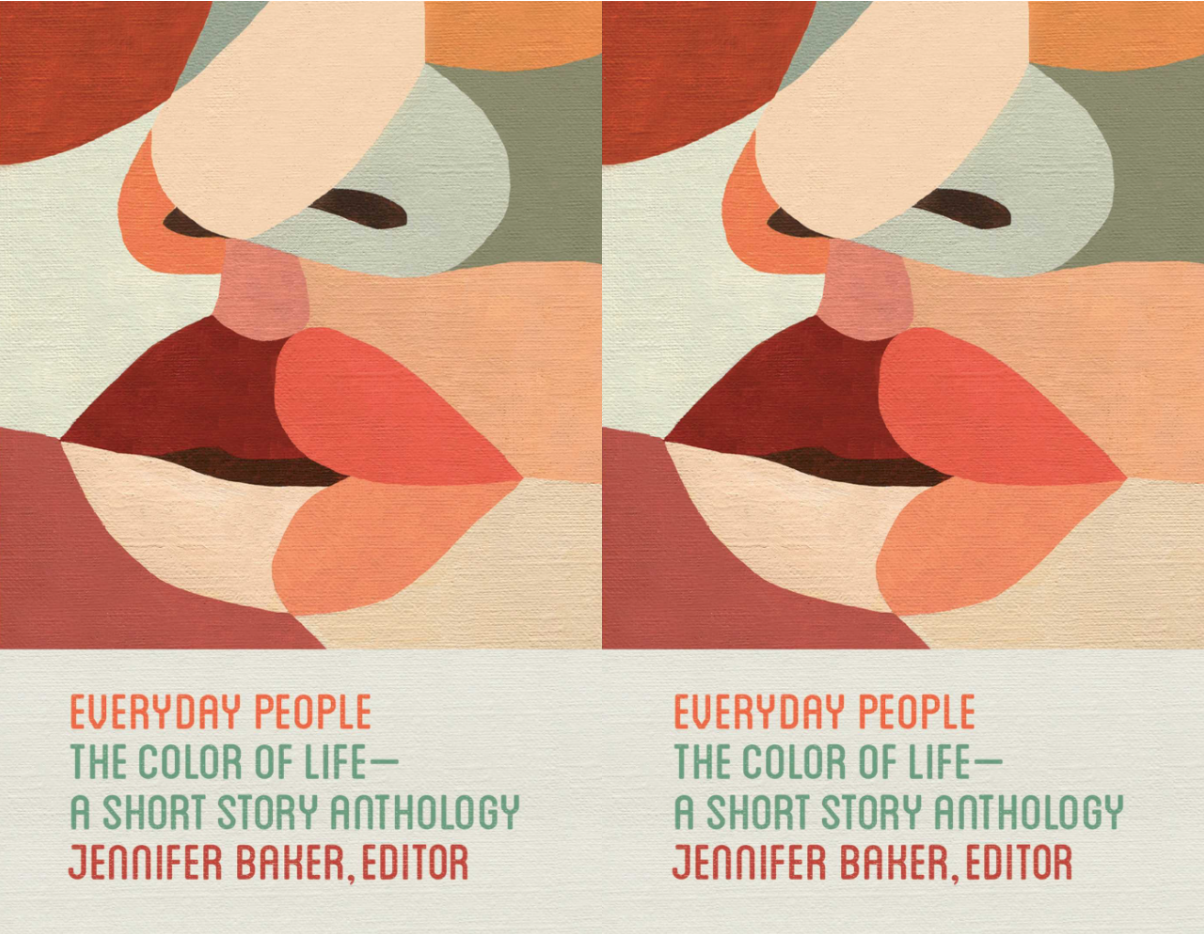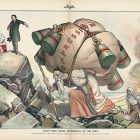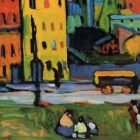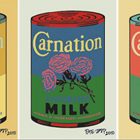Queerness in Everyday People: The Color of Life

Each short story in Everyday People: The Color of Life, a kaleidoscope of voices, shimmers with the intensity of characters sketched with precision and empathy. Editor Jennifer Baker, assembling a diverse range of writers, notes in her introduction that the “array of wonderful contemporary writers both established and emerging…speaks to experience, loss, fulfillment, and also being at that fork in the road where decisions must be made yet are not always pursued due to failings of moral fortitude.” In particular, three queer writers in Everyday People—Brandon Taylor, Dennis Norris II, and Alexander Chee—show with a deft hand how close their characters come to experiencing loss and fulfillment in nearly the same breath. These writers’ collective attunement to the body makes this immediacy and vulnerable intimacy possible.
What’s fascinating, however, is how Chee, Norris, and Taylor, each in their own literary style, paint queerness as an out-of-body experience. Their protagonists, young men coming to terms with their sexuality, are betrayed by their desires and feel out of place within their bodies. Their desires may arise from deep inside them, but through unconscious—and yet altogether daring—acts of transference, they imitate and incorporate within their own bodies the bodies and experiences of others. Where it doesn’t seem possible for their characters to live inside their own skin, writers Norris, Taylor, and Chee illustrate the potentials—as well as the disappointments—of inhabiting other people’s experiences.
In Chee’s story “Mine,” a Korean-American man returns to his childhood home in Maine to discover that he’s fathered a son with Katie, a young woman he was once close with. As an adolescent, Chee’s narrator, named only once as Stanley Yu, feels isolated and so condescends to all those ordinary people around him. Despite this false superiority, he writes himself out of his own desires, attractions that pull him out of his body. “[I] created extended fantasies that involved many of the boys in the high school, with each other but never me. My fantasies back then never included me.” His body fades to the background; it’s his mind that occupies a place in the sexual lives of boys he knows—like Derrick, Katie’s boyfriend, and Geoff, Derrick’s best friend. The unknown but stirring, homoerotic friendship that Derrick and Geoff intimate with one another becomes fertile ground for Stanley to produce his own private desires.
Chee’s narrator loses his father early in his life. Without a model to follow, and not living within a body able to act on its desires, how can Stanley know he exists in the world? Chee offers a touching answer to this question. Learning he has a fourteen-year-old son, a “quiet, good-looking kid Katie had named Boomer,” affords Stanley a chance to see his likeness within a new corporeality, as well as his own future. We’re treated to the image of Stanley’s appearance only once in detail as an adolescent—but it’s a moment he sees himself at his most unfortunate. Stanley dons a polyester Burger King uniform in the bathroom on his first day at a job flipping burgers, the sad colors in the mirror emptying his body of all its youthful specialness. He becomes, in a way, no “better than these people,” the ordinary townspeople whom he hated. But gazing on Boomer, years later, alights Stanley’s mind to understand how one can be both everyday and exceptional. Just as the body is something you create, family is “something you buil[d].”
Death, however, hovers close to the narrator’s life: the story opens with Stanley visiting his father’s grave and later, he narrowly misses death by crashing his car. Chee’s narrator skirts dangerously close to repeating the past, for his father died in a car accident. But the redemptive moment of introducing his aging mother to Boomer offers the promise of believing in the continuity of a body. What’s more, it affords the possibility to mourn what Stanley never told his father about who he is.
Where the narrator of “Mine” confronts his past in order to make space for his future, a story by emerging writer Brandon Taylor, “Boy/Gamin,” begins earlier, more endearingly, leaving the possibilities of the queer protagonist’s life open. Taylor’s story delivers from the start the quiet, tense energy of a young life spent waiting, alone, deepening as it progresses. A young white boy named Jackson spends his time shielded from view, yet always watching others—Mama and largely absent Daddy, strangers, nature. Taylor attunes us to Jackson’s own keen powers of perception, which he hones from a young age. While coloring on his front porch, he once followed a trail of ants to a dead baby bird; Jackson reinterprets a childhood saying to understand, with terrifying acuity for a lonely boy of five, that “ants are finders. They are keepers. They find everything and anything that is hidden.” Taylor’s sentences are charged with electricity, threatening to spark at any moment. We wait for Jackson’s body to become something he can trust.
As Jackson grows, he learns of his own ability to be seen at the same time that he takes in the bodies of boys around him. One of them, Eric, the black friend in Jackson’s group, becomes the object of his desires. In a heart-wrenching mix of feelings, Jackson “imagines he can feel Eric’s fingers on his stomach” as they swim in the river, while at the same time thinking that “he wants to punch him because he doesn’t want to feel anything for somebody who is going to leave him again.” (He’s thinking here of Daddy, who fights with Mama and has left and come back home.) Eric’s body becomes the repository of both Jackson’s desires and fears—how cruel that he should learn these feelings as inextricable.
Still, Jackson longs to feel “weightless and free of time and space.” He “imagines what it is like to drown.” His body fades out of focus and becomes something he distributes across the shallow river and across Eric; across his high-school crush later in the story; and even across language itself. Davis Howell, an attractive running-back in Jackson’s French class, flirts with Jackson. Jackson perceives a force field between them, “some tense force holding them at a distance like two magnets with the same charge.” When he finally kisses Davis one afternoon at the creek, Jackson wonders what they’re doing and why they’re not taking things further. Eventually, another boy named Heath offers Jackson a chance to have more, and Jackson abandons Davis in the school courtyard. Queer desire seems premised on separation from a young age—apartness that comes without knowing when or whether fulfillment will ever come. When it does come, it’s never distinct from the fear of disappointing another person or even one’s own self.
All the while, Jackson is learning French. The new grammar gives him a structure to live within: amidst the confusion of bodies that titillate and frustrate him, he’s able to find a space within another system of thought and expression. In addition to separation, queer desire conflates wanting to have and wanting to be another person. Jackson has no trouble, however, grasping the rules for using être and avoir in the passé composé construction—for him, there is a distinction between being and having. “French makes sense to him. The patterns, conjugations, order, and strictures of the language are not always easy to understand, but it triggers something in his mind like memories of things he has never experienced.” Even the slash dividing the English and French word in Taylor’s title, “Boy/Gamin,” allows Jackson to reimagine his body as somehow occupying dual systems of thinking. Where English fails to provide a space for him to understand himself, Jackson inhabits French as a way of seeing the body anew, seeing how being and having cannot be one and the same, as they’re conflated within a queer framework. Ultimately, Taylor’s story ends with Jackson going off with Heath, for Davis is unable to tell Jackson how he feels. Jackson commits to mastering the art of waiting, just as readily as he’s incorporated French inside his fibers.
A pat conclusion would be too easy for Taylor, but also unsatisfactory for readers. Taylor shows us, through Jackson, how the body learns that there’s no end to longing. There’s only more longing. And with Dennis Norris II’s haunting story, “Last Rites,” we sense that longing transfers from one body to another, even after death. Norris opens with a near-lifeless body calling from inside a wrecked car. John the Reverend is trapped. As he awaits help, he imagines the body of the trooper appearing on the scene as that of his estranged son, Davis, now an adult gay man.
“I need my son. I need to save my son,” the Reverend utters, and thus begins a story of redemption left painfully unfulfilled. Nearing death, the Reverend’s mind wanders back to his son’s childhood, when Davis was once a sensitive boy who screamed and convulsed nightly and who lost his mother at five. His body was “disjointed, uncoordinated,” an impossible thing for the Reverend to fathom or soothe. The only thing that comforted Davis was lying against his father’s bare chest in bed, as he sings him a song. This is the moment Davis sees his father crying; the moment he reaches out to kiss his father; the moment Davis learns a cruel lesson about acceptable male-male interactions. He’s abruptly abandoned in his bed, “quivering… asking, quietly, for his mother.” Echoing Chee’s bathroom scene, Norris sketches the Reverend standing at the sink that evening. “He studied what he saw before him, trying to see his face through his son’s eyes: the thick-skinned wrinkles of his forehead. His wide-set nose and fat nostrils. The mole on his left cheek with the hairs growing out of it.” Norris asks us to look at this body, and to wonder whether this is what Davis sees when he looks at his father. Will Davis come to know his own body as something his father gave him?
As Norris’ story draws to a close, the trooper on the scene to rescue the Reverend tells him he has a son of his own. The Reverend imagines things he wants to tell the trooper about sons. But Norris pulls away—nearing death, the Reverend is “too cold to move his lips, too cold to feel his tongue ”—leaving the reader to wonder whether it’s all too late.
Not only is Davis, refracted through the Reverend’s faraway memories, forced to confront the limits of his affection for men, but the Reverend also reveals his body as somehow a conduit for the experiences of fathers and sons too afraid to show intimacy among one another. Still, what’s left unsaid comes to a painful conclusion, as the language of destruction and delirium floods the last moments of the Reverend’s life: “Assistance. Dangerous. Life.” The Reverend is trapped within a car he’s crashed at the same time that he’s imprisoned within the choices he’s made, perhaps by drinking, perhaps by reaching out to Davis too late. Still, Norris affords the Reverend enough empathy to take stock of his son’s sexuality, thereby attempting to close the circle broken years ago. By no means a queer character, the Reverend nevertheless demonstrates how queerness offers an opportunity for people to extend themselves beyond their skin and reimagine the alterity of others’ bodies anew.
Norris, Taylor, and Chee have created stunning characters in each of their stories, anthologized within Everyday People, out now from Atria Books. Either they inhabit other people’s experiences in their mind or incorporate the feelings of others within their own bodies. Either way, queerness becomes a means of living outside one’s own body. These seem to be strategies for getting on, for surviving in a world that fails to account for the full color of everyone’s existence. After all, queerness is depicted in “Mine,” “Boy/Gamin,” and “Last Rites” as something other people know sooner than the very people forced to confront it within themselves, giving others the power to name it and define it, as Norris’ tragedy plays out for the Reverend. But one begins to understand that, if we’re all in some way ordinary, everyday people, we’re united by the fact that we appear broken. What sets us apart is the ability to imagine a light shining through our cracks.



